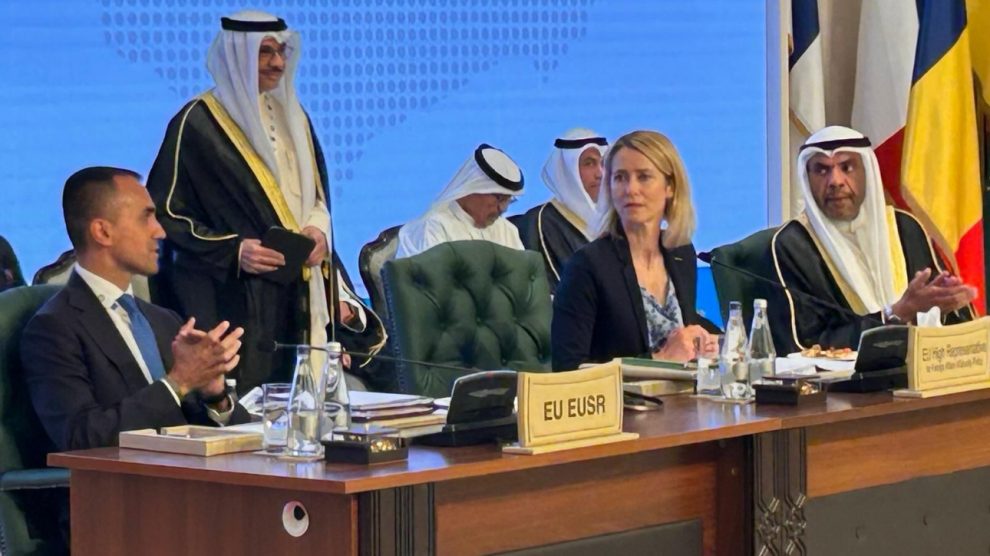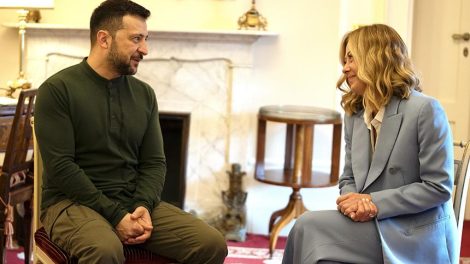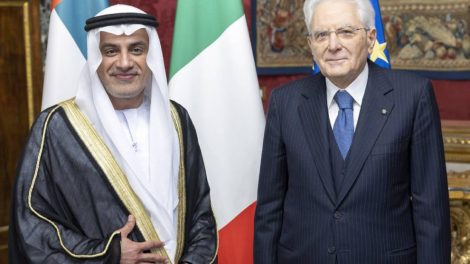It’s a message of consistency and universality of principles, strengthening the EU–GCC platform as a tool for stability and cooperation.
Why he matters: From Gaza to Ukraine, Luigi Di Maio is the EU’s voice in the Gulf. He coordinates dialogue with Arab partners on security, energy and regional peace at a time when Europe seeks to reinforce its role in the Mediterranean and the broader Middle East.
Q: The EU–GCC statement supports Trump’s plan and Ukraine’s territorial integrity. What is the political meaning of this dual position, and what message does it send internationally?
A: The political message is clear: the European Union and the Gulf Cooperation Council jointly reaffirm that diplomacy, international law and dialogue remain the only legitimate tools to resolve conflicts, wherever they occur.
- The joint support for President Trump’s peace initiative to end the war in Gaza and for Ukraine’s territorial integrity shows a coherence of principles and universality of approach — the defence of sovereignty and negotiated peace is neither selective nor geographic.
- This dual reference, in a document signed jointly by EU Member States and Gulf countries, strengthens the EU–GCC partnership as a platform for stability and as a credible actor able to engage with all sides.
Q: The reference to Trump’s plan comes amid a redefinition of regional balances. How can this convergence between Europe and the Gulf contribute to lasting peace and stability in the Middle East — and to a new security architecture?
A: The reference to Trump’s plan must be understood in a context where multilateral diplomacy is seeking new tools to reopen political channels between Israel, Palestine and the Arab world.
- The fact that Europe and the Gulf states converge on a shared approach to peace — based on negotiation, respect for international law, and support for the two-state solution — brings the Middle East question back into a framework of collective responsibility.
- Today, it’s not only about stopping the war in Gaza but also about building a new regional security architecture, grounded in political dialogue, economic integration, and cooperation in key sectors such as energy, infrastructure, and maritime security.
- The EU–GCC understanding can serve as a bridge between the West and the Arab world, combining security, development and preventive diplomacy.
Q: The EU–GCC strategic partnership appears to be deepening not only politically, but also in economic and security terms — increasingly the foundation for regional and interregional stability. What are the following concrete steps to turn this convergence into action?
A: The Kuwait ministerial meeting showed that the partnership between the European Union and the Gulf Cooperation Council has entered a fully operational phase. We’ve moved from statements of principle to a concrete agenda, marked by clear milestones and active instruments.
- First, consolidating the security and defence pillar. Following the second EU–GCC Security Dialogue held in Brussels, we are implementing cooperation plans on maritime security, counterterrorism, cybersecurity, and non-proliferation, along with the creation of a joint counterterrorism working group and new operational exchange platforms between intelligence and security agencies.
- Second, relaunching the economic and trade dialogue. As underlined in my remarks in Kuwait City, resuming negotiations for an EU–GCC free trade agreement is a political priority. Exploratory sessions after the Brussels Summit showed a new level of openness and pragmatism. In November, the EU–GCC Business Forum — again in Kuwait City — and the European Chamber of Commerce in the Gulf, will offer a chance to translate this momentum into tangible business opportunities.
- Third, strengthening the energy–climate–connectivity pillar. The organisation of the first EU–GCC Conference on Energy Security in Brussels and coordination on global infrastructure initiatives, such as the IMEC corridor, highlight our shared determination to turn energy cooperation into a strategic partnership for the green transition and supply-chain security.
The bottom line: Beyond these three pillars, there is a transversal objective — “to bring our societies closer together,” said Di Maio, “through projects such as the Young Leaders in Regional Diplomacy program, which is training a new generation of European and Gulf diplomats capable of building trust and continuity over time.”





